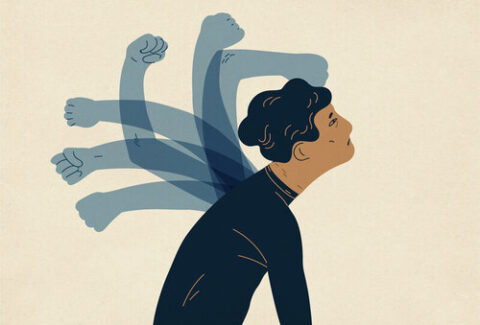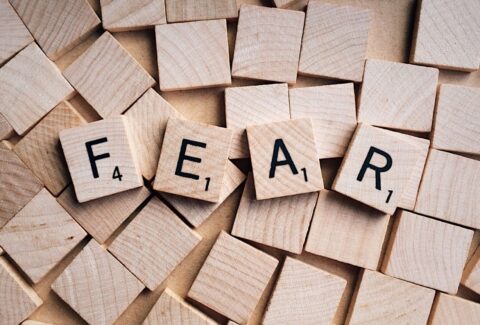Mood Stabilizers: The Next Five
“I heard Topamax makes patients and clients lose weight, while Lithium and Depakote cause them to gain weight. Please tell us what we should know about Topamax.†This was Lily’s additional question for Dawn, who responded, “We can talk today about Topamax and a few more Mood Stabilizers.â€
In a previous article entitled, Mood Stabilizers: The First Five, I outlined some fundamental knowledge about Lithium, Valproic Acid (Depakote), Olanzapine (Zyprexa), Lamotrigine (Lamictal), and Carbamazepine (Tegretol). In this current article, I describe five additional Mood Stabilizers, including Topiramate (Topamax), which Lily inquired about.
Here are the next five Mood Stabilizers for you to know about:
Topiramate
Its brand name is Topamax; it can be prescribed as both an anticonvulsant and a mood stabilizer and is also used to treat migraines. Topiramate has been used in combination with Phentermine (a psychostimulant drug), with the trade name Qysmia and was approved for weight loss in 2012 by the FDA (Food and Drug Administration). While Topiramate has also been used to treat Bipolar Disorder, it has been shown to be no better than placebo. Some evidence has shown it to be effective for the treatment of symptoms of Borderline Personality Disorder, but this has yet to be replicated.
Similar to several other anticonvulsants, Topiramate has also been used off label (using medication for purposes other than initially approved) in the treatment of Alcohol Use Disorder, including Alcohol Withdrawal, and obesity (until 2012, when it was FDA approved for this use in combination with Phentermine); other off label uses include treatment for Post-Traumatic Stress Disorder, Essential Tremor, and Obsessive-Compulsive Disorder. Â Some of its side effects include nausea, somnolence, and diarrhea.
Gabapentin
Its brand name is Neurontin; it has been used in the treatment of seizure disorders, neuropathic pain, hot flashes, and restless leg syndrome. It has also been used as a Mood Stabilizer, despite evidence that it is no better than placebo. Some other off-label uses (Non-FDA approved) include anxiety disorders and sleep difficulties. As is the case for Topiramate and other anticonvulsants, Gabapentin has been shown to be effective in alcohol detoxification, reducing the symptoms associated with alcohol withdrawal. It is listed as a second line treatment agent for Alcohol Use Disorder.
Some side effects include dizziness and somnolence, and there have been reports of increased risk of suicide and aggression. Gabapentin can also be misused and abused, and sometimes it is sold “on the street†under the name of “Johnnies.â€
Aripiprazole
Its brand name is Abilify, and it has been described in our article series on Antipsychotics entitled, Basic Knowledge of Antipsychotics: The Five Atypicals. Aripiprazole has also been shown to be effective in the treatment of acute mania in children, adolescents, and adults. It is also used in maintenance therapy for Bipolar Disorder, preventing manic episodes. Aripiprazole has also been used in the treatment of Major Depressive Disorder, but the benefits have not been shown to outweigh the risks, contrary to the positive results seen in those with Bipolar Disorder.
Quetiapine
Also discussed in our article series on Antipsychotics, its brand name is Seroquel, and it is an atypical antipsychotic used in the treatment of Bipolar Disorder, Major Depressive Disorder, and Schizophrenia. It is used to treat both depressive and manic episodes seen in Bipolar Disorder, either alone or with Lithium or with an anticonvulsant mood stabilizer, like Valproic Acid or Lamotrigine. It is also used as an adjunct treatment with Lithium or Valproic Acid in the maintenance treatment of Bipolar Disorder. Some of its side effects are somnolence, weight gain, dry mouth, and constipation.
Ziprasidone
Its brand name is Geodon; it is an atypical antipsychotic used in the treatment of Schizophrenia. It is also used in mania and mixed states of depression and mania associated with Bipolar Disorder. Its side effects are generally the same as the other atypical antipsychotics, in addition to the cardiac related side effects and the finding that it can sometimes activate mania in patients and clients affected with Bipolar Disorder.
“I heard Topamax makes patients and clients lose weight, while Lithium and Depakote cause them to gain weight. Please tell us what we should know about Topamax.†This was Lily’s additional question for Dawn, who responded, “We can talk today about Topamax and a few more Mood stabilizers.â€
After an overview of Mood Stabilizers, in the first series article, Mood Stabilizers: The What: 5 Things all Clinicians Need to Know about Them, I have now provided a brief description of ten of the most commonly used mood stabilizers, with some key elements for each of them. If you build upon this knowledge and seek additional information and use them on a daily basis, you will continue to feel empowered to then, in turn, empower your patients and clients, as they strive towards recovery. You will also find your work and career to be increasingly gratifying, which will help empower you even further. This will ultimately lead to a decrease in burnout, and you will continue to be present for your patients and clients, as you work to make a difference in their lives.
References:
-
Cipriani, A; Barboy, C; Salanti, G; Rendell, J; Brown, R; Stockton, S; Purgato, M; Spineli, LM; Goodwin, GM; Geddes, JR (8 October 2011). “Comparative efficacy and acceptability of antimanic drugs in acute mania: A multiple-treatments meta-analysis”. Lancet. 378 (9799): 1306–15.
-
Leib, Klaus; Völlm, Birgit; Rücker, Gerta; Timmer, Antje; Stoffers, Jutta M (2010). “Pharmacotherapy for borderline personality disorder: Cochrane systematic review of randomised trials”. British Journal of Psychiatry. 196 (1): 4–12.
-
Letmaier, M; Schreinzer, D; Wolf, R; Kasper, S (2001). “Topiramate as a mood stabilizer”. International clinical psychopharmacology. 16 (5): 295–8.
-
Thase ME, Macfadden W, Weisler RH, Chang W, Paulsson B, Khan A, Calabrese JR (2006). “Efficacy of Quetiapine Monotherapy in Bipolar I and II Depression”. Journal of Clinical Psychopharmacology. 26 (6): 600–9.









